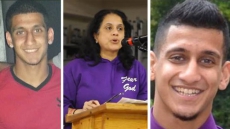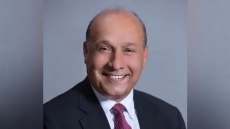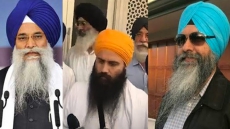Avtar Singh Khalsa will represent Afghanistan’s tiny Sikh and Hindu minority in the next parliament, where he says he hopes to serve the entire country.
Few Afghans are as invested in the government’s quest for peace and stability as the dwindling Sikh and Hindu minorities, which have been decimated by decades of conflict. The community numbered more than 80,000 in the 1970s, but today only around 1,000 remain.
Khalsa, a Sikh and longtime leader of the community, will run unopposed for a seat in the lower house of parliament that was apportioned to the minority by a presidential decree in 2016. After the October election, he will be a solitary voice among 259 legislators, but hopes his 10 years of service in the Afghan army can help him secure a seat on the defence and security committee.
“I want to serve not only my Sikh and Hindu brothers. I have to be able to serve all Afghan people, no matter which ethnicity or group they belong to. Our services must reach everyone,” he told during an interview inside a colourfully decorated temple in Kabul.
The 52-year-old father of four, originally from the eastern Paktia province, has lived most of his life in Kabul. He also served as a senator representing the minority, which has long had a seat in the upper house of parliament.
Sikhs and Hindus have been driven out of many areas by heavy fighting. They have suffered widespread discrimination in the conservative Muslim country and have also been targeted by Islamic extremists.
Under Taliban rule in the late 1990s, they were asked to identify themselves by wearing yellow armbands, but the rule was not enforced. In recent years, large numbers of Sikhs and Hindus have sought asylum in India, which has a Hindu majority and a large Sikh population.
“We must try to save our people from this chaos,” Khalsa said. “By any means and at any cost we must ask for our rights from the government. Your rights will not be given to you, you must earn them,” Khalsa said.
Khalsa will join parliament at a time when the Afghan government is struggling against a resurgent Taliban and an Islamic State affiliate. The Taliban have seized a number of districts across the country, and IS has carried out a wave of attacks in recent months targeting the country’s Shiite Muslims, another embattled minority.
Sikhs and Hindus would face renewed persecution under the Taliban and wholesale slaughter at the hands of the more radical IS. But Khalsa said he had no plans to leave the country and would continue to fight for his community’s survival.
“I sacrifice myself for those of my brothers who have been through all kinds of pain and suffering,” he said. “I don’t care if I lose my whole family and get killed for this cause. I will struggle until I get their rights.”





